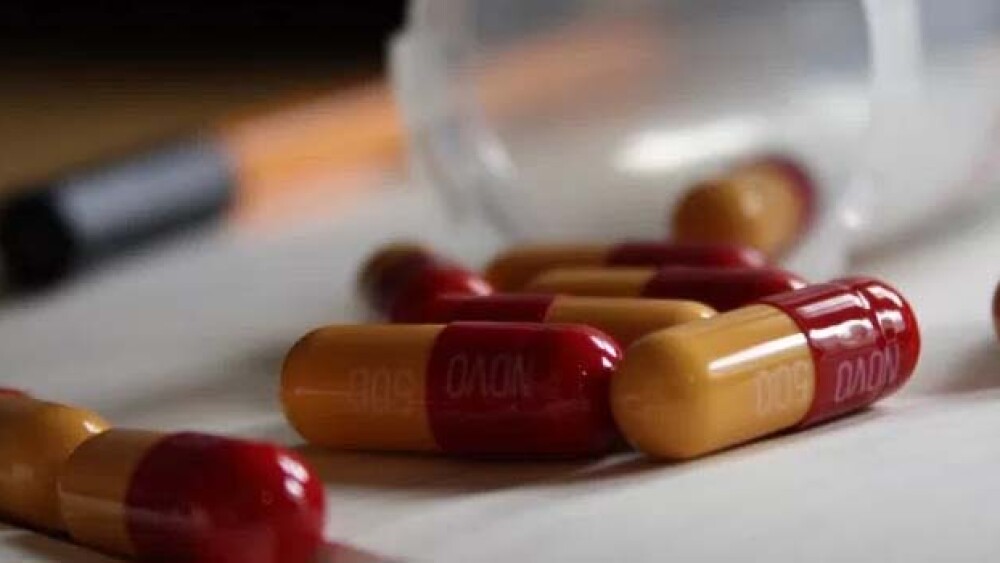A number of biopharma companies are making strides in developing non-opioid pain killers or opioids that are more difficult to abuse.
While the Trump Administration and the federal government makes pronouncements over the opioid epidemic with very little teeth, a number of biopharma companies are making strides in developing non-opioid pain killers or opioids that are more difficult to abuse. A case in point is Canton, Massachusetts-based Collegium Pharmaceutical.
Most recently, Collegium persuaded Cigna, Humana, Navitus, and other health insurers in Florida and Pennsylvania to cover its Xtampza instead of Purdue Pharma’s OxyContin. Florida Blue, the state’s largest insurer, plans to drop OxyContin in January. And on Nov. 7, the U.S. Food and Drug Administration (FDA) approved Collegium’s Supplemental New Drug Application (sNDA) for the labeling of Xtampza ER to change the label to indicate it was more difficult to abuse than the abuse-deterrent version of OxyContin.
Which doesn’t necessarily mean that Collegium is dominating the market. It’s a small company that has about 4 percent of the long-acting oxycodone prescription market. Purdue, on the other hand, has 78 percent of the market with OxyContin. In the wider market for brand-name, long-acting opioids Collegium has 3 percent of prescriptions compared to Purdue’s 60 percent.
But STAT notes that Collegium appears to be gaining ground through a careful strategy that leverages public concern over the opioid epidemic.
STAT writes, “Purdue famously used aggressive marketing tactics to promote OxyContin in the late 1990s and early 2000s, ultimately agreeing in 2007 to pay $600 million to resolve criminal and civil charges of misleading doctors, regulators, and patients about the drug’s risks. A more recent slew of lawsuits allege that those tactics continued beyond that period.”
Collegium tries to get the message out that its products are less likely to be abused and isn’t marketing directly to consumers. “We don’t care if the market shrinks,” said Michael Heffernan, Collegium’s chief executive officer and founder, to STAT. “We’re not trying to get more people on opioids.”
Both statements are probably a bit oblique, because he wouldn’t be much of a chief executive officer if he wasn’t focused on market share and the company undoubtedly wants to sell its product over other companies’ products. But Heffernan’s approach is to convince physicians that their patients with chronic pain can switch to or start with Collegium’s products, which are safer and less likely to be abused.
Xtampza launched in June 2016 and is taken orally. And for patients who have problems swallowing pills, it can be broken in half and the “tiny balls of medication inside—like grains of sand that feel waxy to the touch,” reports STAT, can be sprinkled on soft food.
STAT writes, “It’s that same unusual design that makes the product tougher to abuse. Using a method developed by Collegium and Massachusetts Institute of Technology scientists, the company produces a novel salt that’s not soluble and protects it with fatty waxen materials. (Most other abuse-deterrent opioids, like the version of Oxycontin introduced in 2010, employ a different strategy: They focus on making the pill harder to crush.)”
To be clear, Xtampza is harder to abuse, not impossible to abuse. It’s still addictive, patients can take more pills than they should, and although it’s harder to do, the creative or desperate addict can still inject or snort it with some effort. It’s also pricey, at $1,077 for 100 capsules of 36 milligrams, before discounts. That’s consistent with other drugs, including OxyContin, which runs around $1,072 for 100 tablets of 40 milligrams each.
It’s interesting, or perhaps ironic, that a solution to the opioid epidemic might come from pharma, since many critics accuse the industry of feeding it, with most fingers pointed at Purdue. In September 2017, the attorneys general of 41 states formed a coalition to look at the role of big pharma in the epidemic, issuing subpoenas for information to Endo International, Janssen Pharmaceutical (a Johnson & Johnson company), Teva Pharmaceuticals, Allergan, and Purdue Pharma. They are also demanding documents from pharma distributors, such as AmerisourceBergen, Cardinal Health and McKesson.
At a press conference at the time, New York Attorney General Eric Schneiderman said, “Our subpoenas and letters seek to uncover whether or not there was deception involved, if manufacturers misled doctors and patients about the efficacy and addictive power of these drugs. We will examine their marketing practices both to the medical community and the public.”





